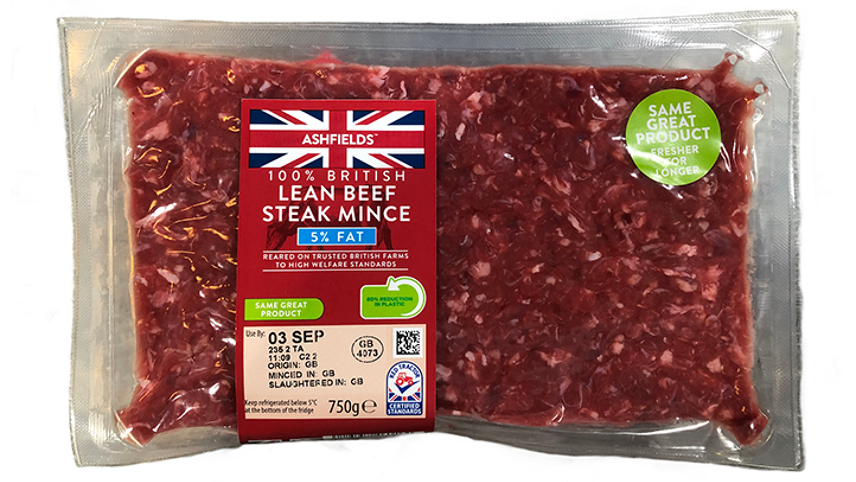This premium content is exclusive to edie Members.
To find out more about edie Membership, please click below.
If you are an existing member, login here

At a glance
Who: Aldi
What: Vacuum and flow-wrap packaging
Where: Stores in Northamptonshire, Leicestershire, Shropshire, Staffordshire, Warwickshire, the West Midlands and Worcestershire
Why: To reduce plastic packaging
When: August 2023
The challenge
Packaging for certain meat products can be a challenge for retailers, with many needing to ensure product safety and quality while keeping a viable timeframe for shelf life. As such, corporates often turn to bulky plastic packaging with paper lining, which in turn adds to the resources used in packaging.
The solution
Aldi has trialed vacuum and flow-wrap packed packaging for beef mince across certain stores. The solution tightly encases the meat product, which while still made of plastics has the potential to reduce the amount of plastic used by up to 73%.
How the project works
Aldi has made the decision to trail the use of Vacuum and flow-wrap packaging to explore what sustainability benefits can be delivered.
Traditionally packaged in a plastic tray with paper lining, Aldi is seeking ways to reduce material use in a bid to meet its goal of halving plastic packaging by 2025 against a 2019 baseline and ensuring that 100% of its own-label packaging is reusable, recyclable or compostable, also by 2025.
Vacuum packaging is a potential solution for many perishable products for the retailer. Vacuum packaging involves removing air from the packaging that is housing the beef mince prior to sealing it. This usually involves placing the item in the flow wrap and plastic film, and then removing the air.
While one of the primary benefits of removing oxygen is to extend the shelf life of the food, the solution also reduces the volume and contents of the packaging. It also greatly reduces bulk, making transportation and storage of mass quantities much easier for retailers and consumers alike. Indeed, even though the volume and size of the packaging have been reduced, the amount of beef mince will stay the same during the trials.
The flow wrap trial will be rolled out in November.
The results
Aldi anticipates that the innovation in packaging will reduce the plastic required for beef mince by 73%. The changes are expected to increase the shelf life of beef mince – keeping products fresher for longer – without affecting taste or quality, reducing potential food waste as well.
Business benefits
The trials not only reduce plastic usage and food waste by extending shelf life, but should also give a welcome reputational boost to the retailer in the eyes of the retailer. The singular packaging means the beef mince can be removed and discarded, without the need to separate the paper lining, and then recycled. The size of the product is also reduced, offering more fridge space for consumers.
Investment/savings
Currently, no estimated savings have been disclosed.
Industry context
Plastics are a huge problem for consumer-facing retailers. Many have set up public targets to make all of their own-brand packaging recyclable or reusable over the next few years and while the low-hanging fruit of removing certain items has been delivered, retailers are searching for new ways to package items while meeting their goals. For food, the added issue is ensuring the quality and safety of the product as the shift to a circular economy takes place.
© Faversham House Ltd 2024 edie news articles may be copied or forwarded for individual use only. No other reproduction or distribution is permitted without prior written consent.

